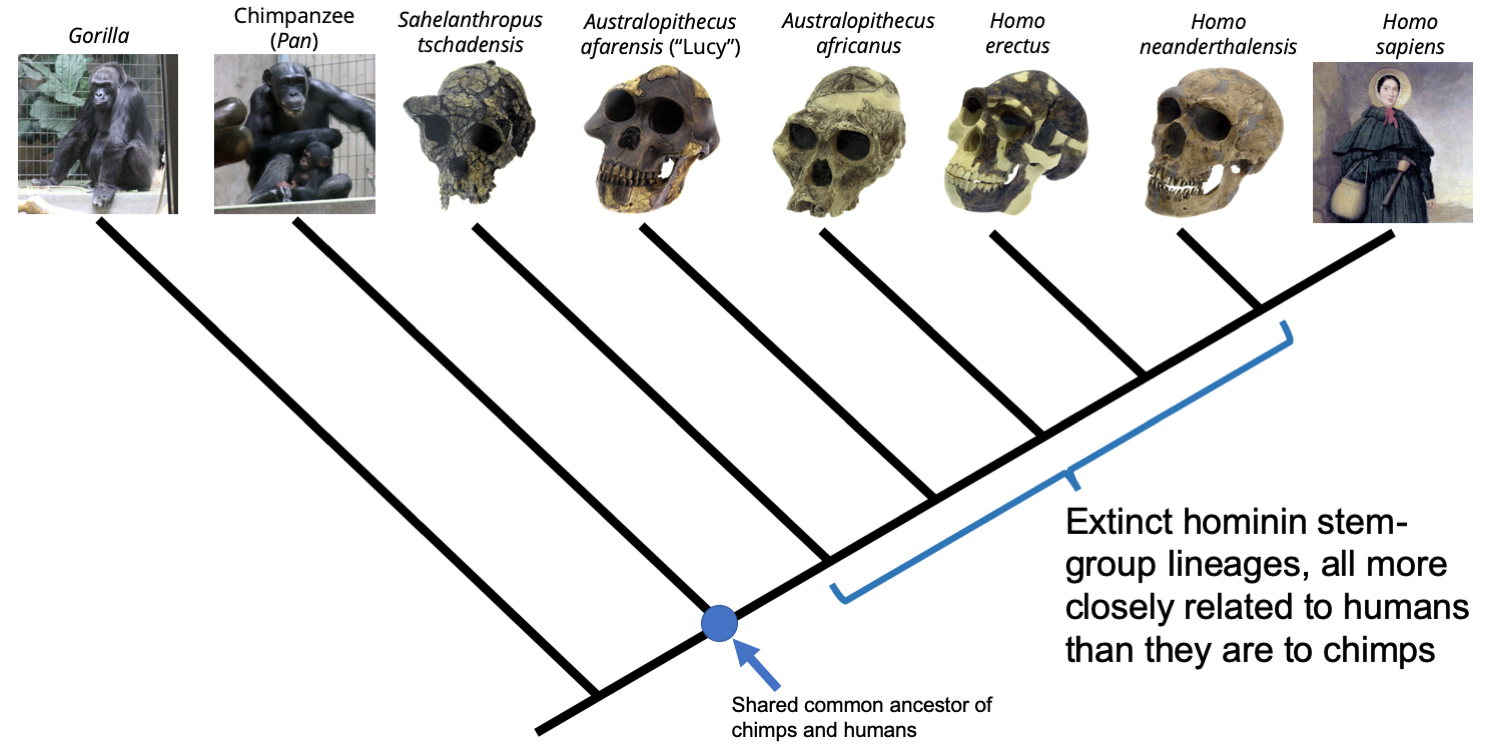In the complex tapestry of human evolution, a pressing question reverberates through anthropology: Are chimpanzees direct ancestors of humans? This inquiry not only beckons for a biological explanation but also prompts a deeper examination through the lens of cultural relativism. By engaging with this query on multiple levels, one can traverse the intricate interplay between science, culture, and the evolving understanding of what it means to be human.
To comprehend the evolutionary relationship between humans and chimpanzees, one must first elucidate the fundamental tenets of evolutionary theory. Humans and chimpanzees share a common ancestor that lived approximately 6 to 7 million years ago. This ancestor is neither human nor chimp but represents a divergent lineage that set the stage for the emergence of both species. Thus, framing chimpanzees as direct ancestors oversimplifies a more nuanced narrative of shared ancestry.
The relationship can be metaphorically illustrated as a branching tree of life, where the trunk represents the common ancestor. As time progressed, different branches evolved separately, adapting to their environments and undergoing distinctive evolutionary trajectories. As such, modern chimpanzees occupy a separate branch while humans inhabit another. This divergence underscores an important principle in evolutionary biology: diversity arises from adaptation to specific ecological niches.
Nevertheless, considering evolution solely through a biological lens does not encapsulate the broader implications of this relationship, particularly when viewed through the prism of cultural relativism. Cultural relativism, as a philosophical approach, posits that one’s beliefs and practices must be understood relative to their cultural context. In this examination, the understanding of human evolution, the place of chimpanzees within our evolutionary narrative, and the moral and ethical implications must be scrutinized within varied cultural frameworks.
Many cultures have historically viewed humans as the pinnacle of creation, a perspective rooted in anthropocentrism. This view can breed a sense of superiority over other species, often relegating them to the status of “lesser beings.” However, acknowledging the evolutionary kinship shared with chimpanzees invites a radical rethinking of this hierarchy. By recognizing that humans and chimpanzees share a rich evolutionary history, societies may begin to reconcile their views on biodiversity and the intrinsic value of all biological life forms.
The anthropological perspective highlights how cultural narratives shape our understanding of human identity. In various cultures, the relationship with primates is deeply metaphorical. In some traditions, chimpanzees symbolize closeness to the divine and the origins of humanity. Contrastingly, others may view them purely through a utilitarian lens. This cultural relativism underscores that the question of ancestral lineage extends beyond biology into the realm of ethics, spirituality, and identity.
Moreover, the rise of genetic studies has further complicated the narrative. Discoveries regarding neanderthal and denisovan DNA contributions to contemporary human genomes emphasize a mosaic of genetic heritage that complicates simplistic understandings of ancestry. These findings reveal that evolutionary processes are often intertwined with hybridization and adaptation, urging us to reconsider our definitions of “ancestors” and “descendants.”
As molecular genetics continues to elucidate the complexities of evolutionary relationships, an intriguing dialogue emerges. The implications of these findings prompt questions about what it means to be human. Are we defined solely by our genetic makeup, or does cultural context and lived experience play an equally significant role? This discourse is pivotal as societies grapple with ethical dilemmas related to conservation, animal rights, and biodiversity.
Cultural narratives surrounding primates can vary dramatically. In some regions, chimpanzees are revered for their similarities to humans, leading to unfounded fears of extinction. In other areas, their populations are exploited, diminishing their numbers and destabilizing ecosystems. Thus, cultural relativism not only shapes our perception of chimpanzees but also influences conservation strategies and ethical frameworks. Cultures that embrace a holistic understanding of the interconnectedness of life may foster greater protection measures for primates.
Furthermore, the impact of educational initiatives designed to cultivate awareness of our shared ancestry with chimpanzees is paramount. Engaging curricula that integrate evolutionary biology with cultural understanding can pique curiosity and prompt discussions regarding biodiversity ethics. This shift from a purely hierarchal view of life forms to an appreciation for shared evolutionary histories encourages respect for non-human entities and the ecosystems they inhabit.
In summary, while chimpanzees are not direct ancestors of humans, the threads of evolution weave a tale of shared ancestry and interconnectedness. Viewing this relationship through cultural relativism enriches our understanding, revealing how culture influences perceptions of identity, morality, and ethical obligations towards all life forms. Balancing scientific realities with cultural interpretations fosters a more nuanced discussion, reflecting the complexity of human existence and our roles within the natural world.
Lastly, asking whether chimpanzees are direct ancestors of humans opens a Pandora’s box of philosophical inquiry. This inquiry necessitates a deliberate engagement with the cultural paradigms that shape our understanding of life, evolution, and our own humanity. As anthropologists and scholars delve deeper into this conversation, they may very well unearth the transformative potential of recognizing our kinship with other species—not just in terms of ancestry, but in the shared journey of existence.
